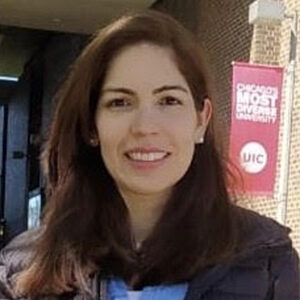Formulations for personal care products, paints and coatings, and food products are common examples of multicomponent fluids containing a mixture of polymer, amphiphiles, and particles as additives. Hydrophobic stickers, charged micelles, and charged particles provide hydrophilic, flexible polymers with temporary, dynamic junctions with an association-disassociation time that changes with polymer concentration and deformation.

Macromolecular engineering of formulations typically relies on the characterization of response to shear flow, with velocity gradients perpendicular to flow direction, emulating processing flows through channels and drag flows near moving solid surfaces. However, characterizing extensional rheology response has remained a longstanding challenge, even though streamwise velocity gradients, associated with extensional flows, often arise during processing especially during dispensing and liquid transfer by dripping, jetting, or spraying. In this contribution, we examine the contrasting influence of dynamic associations on macromolecular dynamics and formulation rheology in response to shear flows using torsional rheometry and extensional flows with dripping-ontosubstrate (DoS) rheometry. We find that dynamic associations help to tweak the rate-dependent rheological response, to facilitate easier dispensing and coating, and better sagging, leveling, and storage while reducing misting and stringiness.
Carina Martinez is a postdoctoral researcher at the Pritzker School of Molecular Engineering at the University of Chicago, working with Juan de Pablo. She received her Ph.D. in Chemical Engineering at University of Illinois at Chicago, mentored by Vivek Sharma. She obtained her B.S. in Chemical Engineering at Universidad de Oriente, Venezuela, and worked in various roles as a process engineer and manager in the oil and gas industry and glass production. Her research interests include the rheology and pinching dynamics of macromolecular formulations containing interacting species. Currently, she is exploring the rheology of liquid crystalline materials. She has received several awards, including three poster awards from the American Physical Society, Society of Rheology, and the Adhesive & Sealant conference, as well as being a Padden Award finalist.